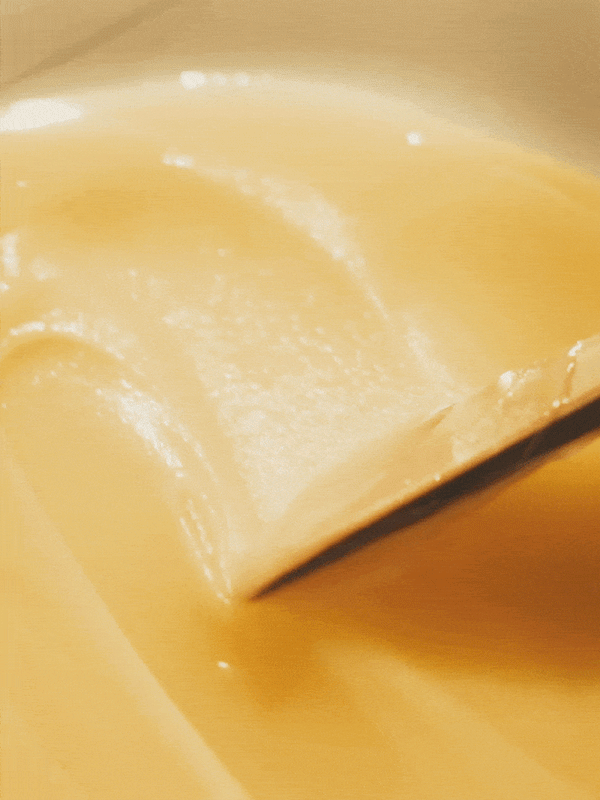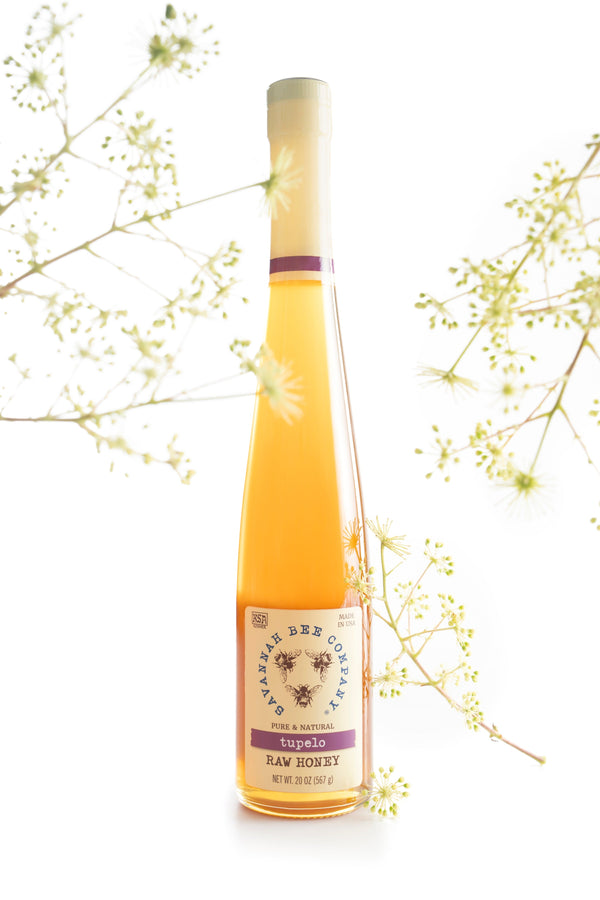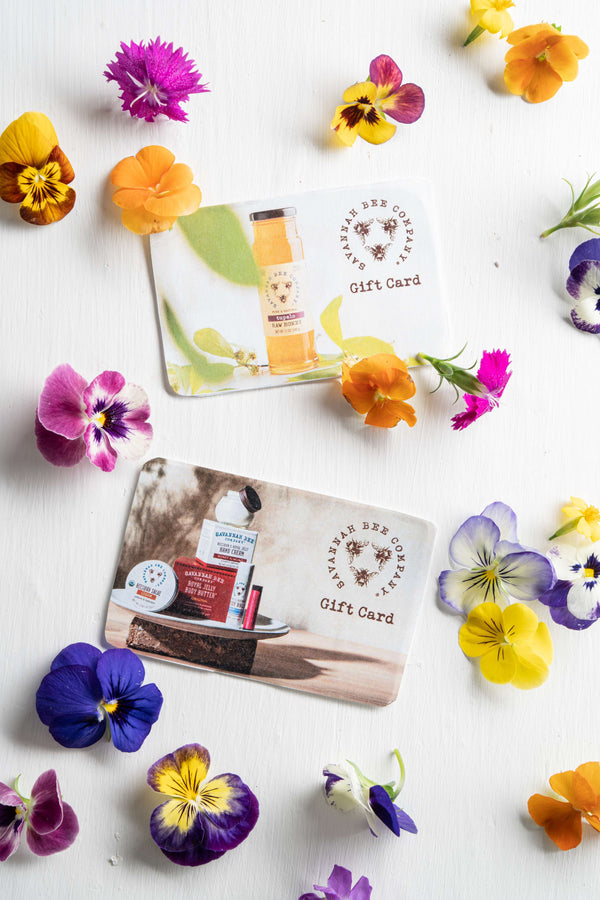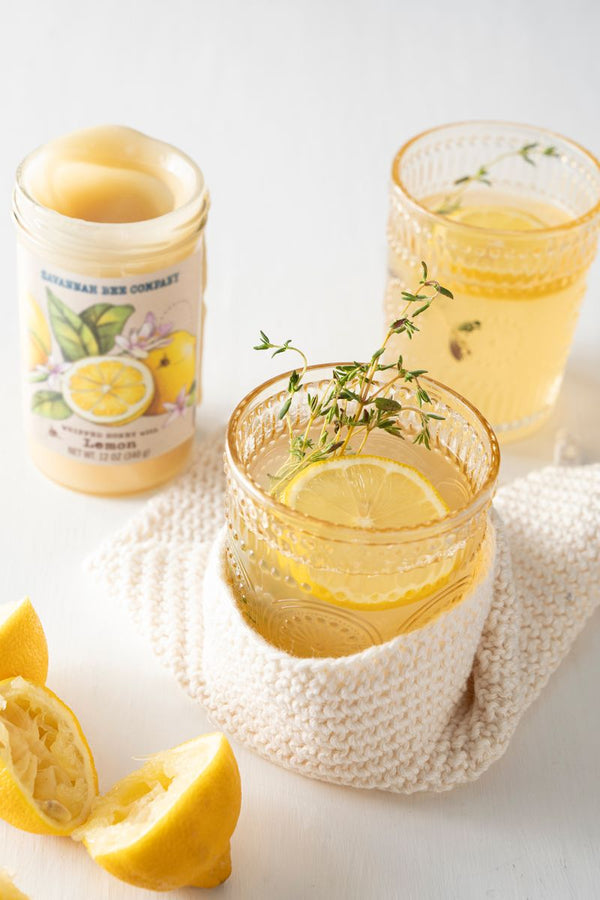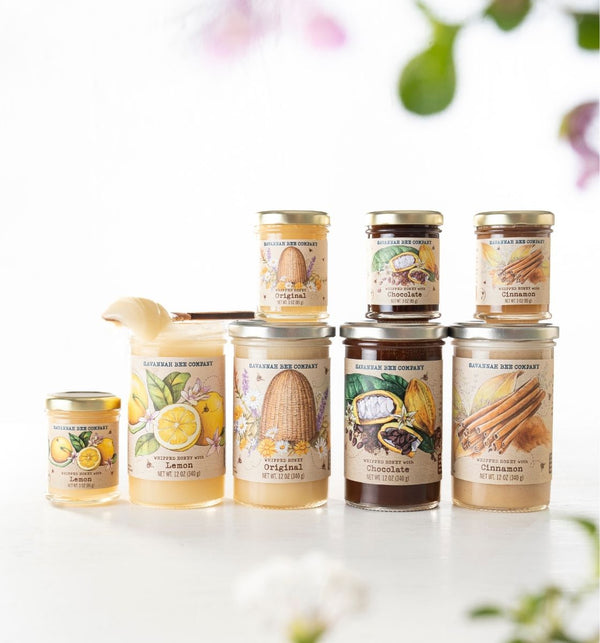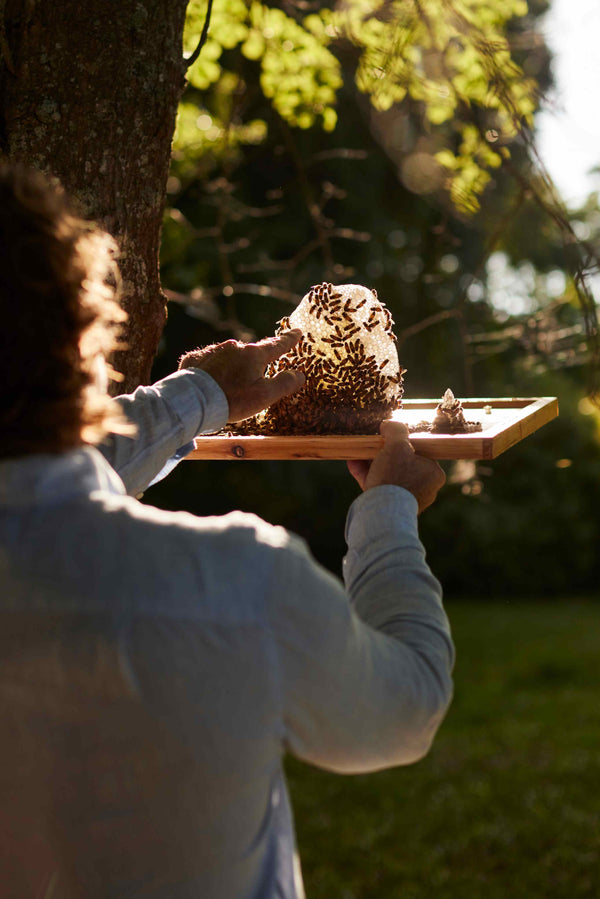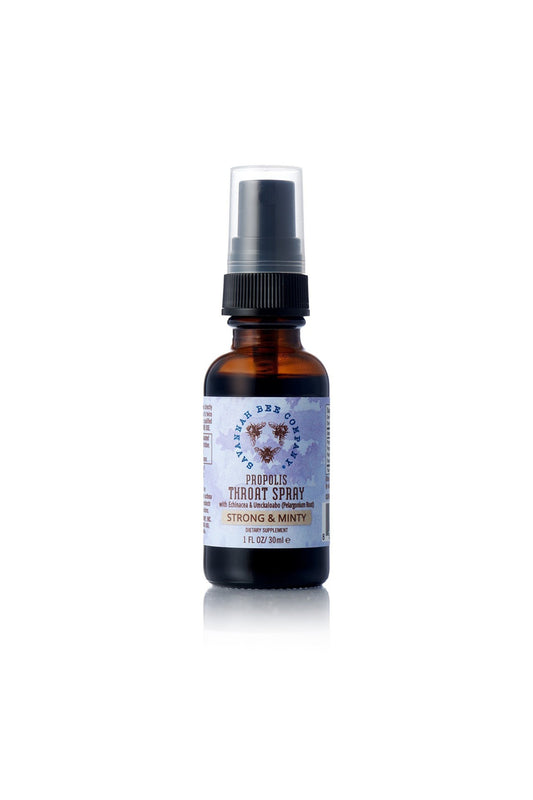Bee Healthy: How Propolis Can Help
Bees are such industrious creatures.
Not only do they create their own food, but they also make their own protective medicine.
By mixing beeswax with tree resin, the bees produce propolis, a waxy substance that keeps intruders out of the hive and defends against pathogens — and research shows it can do the same for the human body.
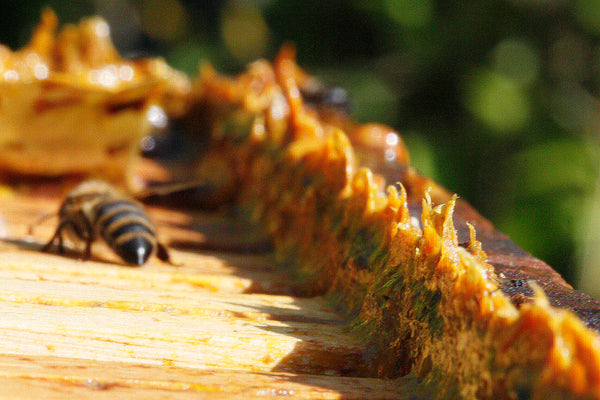
What is propolis?
Like they collect nectar for honey, bees gather resins from plants to create propolis.
And just as honey varies by region and type of flora, the composition of propolis depends on which plants they visit.
Depending on where it comes from, propolis can have different chemistries and contain various compounds.
No matter what its variation, however, propolis comes with universally useful properties:
- Antiseptic
- Antimicrobial
- Antiviral
- Anti-inflammatory
- Antioxidant
These helps keep unwanted critters out of the hive, from insects and lizards looking for a snack to microscopic invaders like viruses.
The bees use propolis to seal cracks in the hives and neutralize a foreign object before it decays and spreads infection.
Scientists have identified over 300 different compounds in propolis, including essential oils, aromatic acids, wax, and amino acids. It’s known as “bee glue” for its effectiveness and resilience!
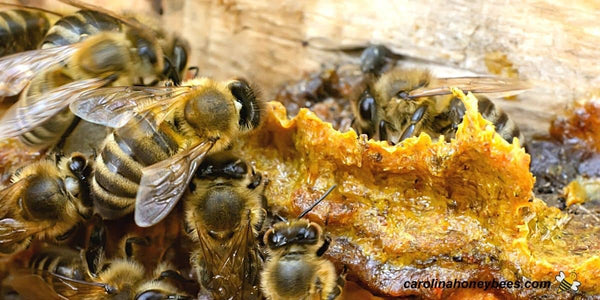
Propolis as human medicine
Ancient cultures knew about the power of propolis 2500 years ago, and it has been heralded as powerful folk medicine all over the world.
Egyptians used it in the mummification process, and Roman soldiers carried small jars of it to heal wounds.
The word “propolis” is derived from Greek — “pro” means “in front of” and “polis” translates to “city,” translating into a substance that protects and defends.
Some like to think of it as the beehive’s immune system — and humans have been using it for millennia to boost their own immunity.
With the advent of modern medicine, the uses of propolis have become even more extensive.
Its ability to fight off bacteria, viruses, and other disease-causing microbes has been documented in many research studies, from staving off colds and flu to antibiotic-resistant strains of MRSA.
It’s also shown to be an effective, low-cost treatment for nail infections, often caused by a pervasive fungus that’s no match for propolis’ antifungal powers.
Very importantly, it’s proven to improve oral health and cancel bad breath!
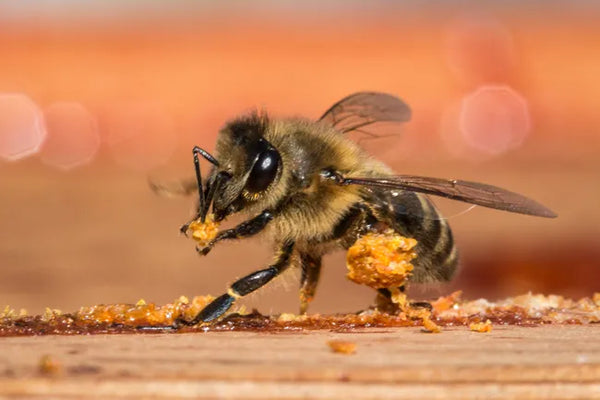
There is promising evidence it can help with other conditions as well:
Propolis and depression
A 2013 study found that propolis helped increase the function of receptors in the hippocampus, the area of the brain associated with depression systems.
In 2002, participants in another study reported significant decreases in their depression after taking propolis for six weeks.
Propolis and cancer
There have been spectacular advancements in the treatment of different types of cancer using propolis.
The stingless bees of the Philippines produce a type of propolis that has been shown to suppress tumors in gastric carcinomas, and propolis gathered from bees in China and Brazil have been shown to inhibit colon cancer.
Scientists are now exploring the development of new drugs for mainstream medicine that harness propolis’ phenomenal anticancer attributes, perhaps ushering in a new era of life-saving treatments.
Propolis for everyday health
Taking a cue from our busy bee friends, adding propolis to our everyday routine may help strengthen our immune systems and keep away the “intruders” that can cause illness in humans.
While propolis is generally safe, some people may experience an allergic reaction, especially those with a sensitivity to bee products.
One way to get your daily dose of propolis is Savannah Bee Propolis Throat Spray — it comes in a Sweet & Minty flavor as well as a Strong & Minty version with an extra kick of cold-fighting herbs — so everyone in the family can benefit from the bees’ special protective medicine.
#savethebees
Strong & Minty Propolis Spray
$27.00 CAD
$27.00 CAD
Published



